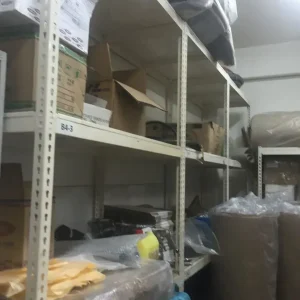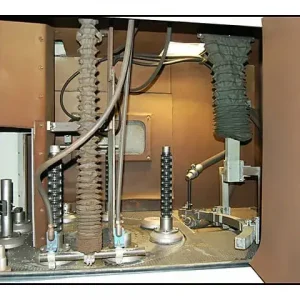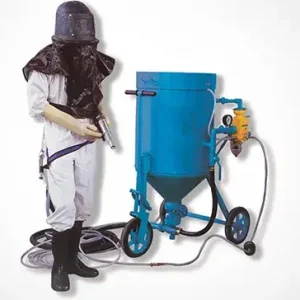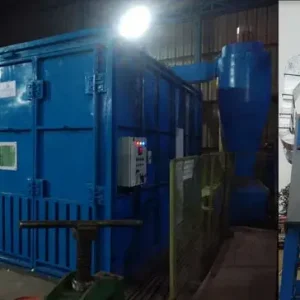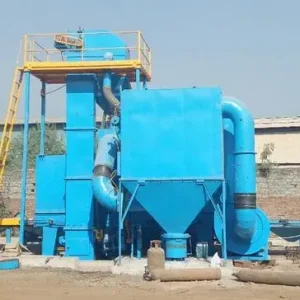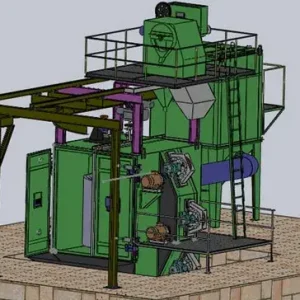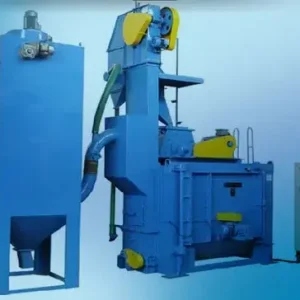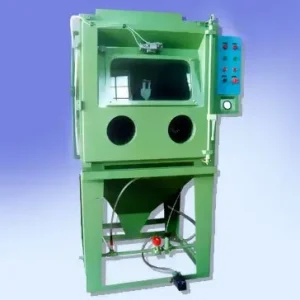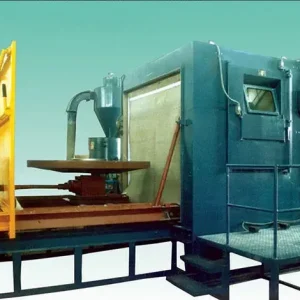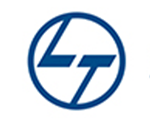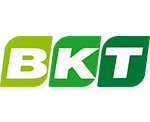Sand blasting, also known as abrasive blasting, is a surface finishing process used to clean, smooth, or prepare surfaces by propelling fine particles (abrasives) at high speed. It is widely used in industries like automotive, construction, aerospace, and metal fabrication for rust removal, paint stripping, and surface texturing.
In this guide, we’ll break down the key processes of sand blasting, its applications, benefits, and safety measures.
1. How Does Sand Blasting Work?
The process involves propelling abrasive particles using compressed air or centrifugal force to impact a surface. This effectively removes contaminants, corrosion, or coatings, leaving a clean and prepared surface for further processing like painting or coating.
Basic Components of a Sand Blasting System:
✔ Abrasive Material: Sand, aluminum oxide, steel grit, glass beads, etc.
✔ Blasting Machine: Equipment that controls and directs the abrasive flow.
✔ Air Compressor or Centrifugal Wheel: Supplies the force to propel abrasives.
✔ Nozzle or Blasting Gun: Directs the abrasive stream onto the surface.
✔ Dust Collection System: Captures debris and ensures a clean workspace.
2. Key Sand Blasting Processes
a) Dry Sand Blasting
🔹 Uses compressed air to blast abrasives without any liquid.
🔹 Ideal for rust removal, paint stripping, and roughening surfaces before coating.
🔹 Common in metal fabrication, automotive restoration, and ship maintenance.
b) Wet Sand Blasting
🔹 Involves mixing water with abrasives to reduce dust.
🔹 Ideal for delicate surfaces, reducing heat generation and preventing warping.
🔹 Used in marine applications, stone cleaning, and graffiti removal.
c) Vacuum Sand Blasting
🔹 A closed-loop system that collects used abrasives and debris instantly.
🔹 Reduces environmental hazards and material wastage.
🔹 Used in precision cleaning and confined spaces.
d) Shot Blasting (Alternative to Sand Blasting)
🔹 Uses metallic abrasives like steel shots or grits instead of sand.
🔹 More aggressive for heavy-duty surface preparation in industries like shipbuilding, aerospace, and foundries.
3. Applications of Sand Blasting
✔ Rust & Paint Removal: Cleans metal surfaces before repainting.
✔ Surface Preparation: Ensures proper adhesion for coatings, primers, and paints.
✔ Etching & Texturing: Used in glass engraving, decorative concrete, and wood finishing.
✔ Restoration & Cleaning: Removes dirt, grease, and oxidation from old machinery and historical buildings.
Top 10 Sand Blasting Machine Manufacturers in India – 2025
Exploring the Future of Shot and Sand Blasting Technologies
Innovative Features in Modern Shot Blasting Machines: An Overview by Indian Manufacturers
4. Benefits of Sand Blasting
✅ Efficient & Quick: Removes contaminants faster than manual methods.
✅ Versatile: Works on metals, wood, glass, concrete, and more.
✅ Enhances Coating Durability: Creates a roughened surface for better paint or coating adhesion.
✅ Eco-Friendly Options Available: Wet blasting and vacuum blasting reduce dust pollution.
5. Safety Measures in Sand Blasting
✔ Wear PPE: Use helmets, gloves, respirators, and protective clothing.
✔ Use Proper Ventilation: Ensure dust collection systems are in place.
✔ Select the Right Abrasive: Avoid harmful materials like silica sand, which can cause lung diseases.
✔ Follow Industry Standards: Ensure compliance with OSHA and environmental regulations.
Final Thoughts
Sand blasting is a powerful, efficient, and versatile surface preparation technique. Whether it’s rust removal, cleaning, or texturing, choosing the right method ensures better results and surface longevity.
🚀 Need expert sand blasting solutions? Aerowheel Surface Finishing offers high-quality, industry-compliant blasting machines and services.
📞 +91 98290 23727
📧 sales@aerowheel.co
🌐 Visit Our Website









